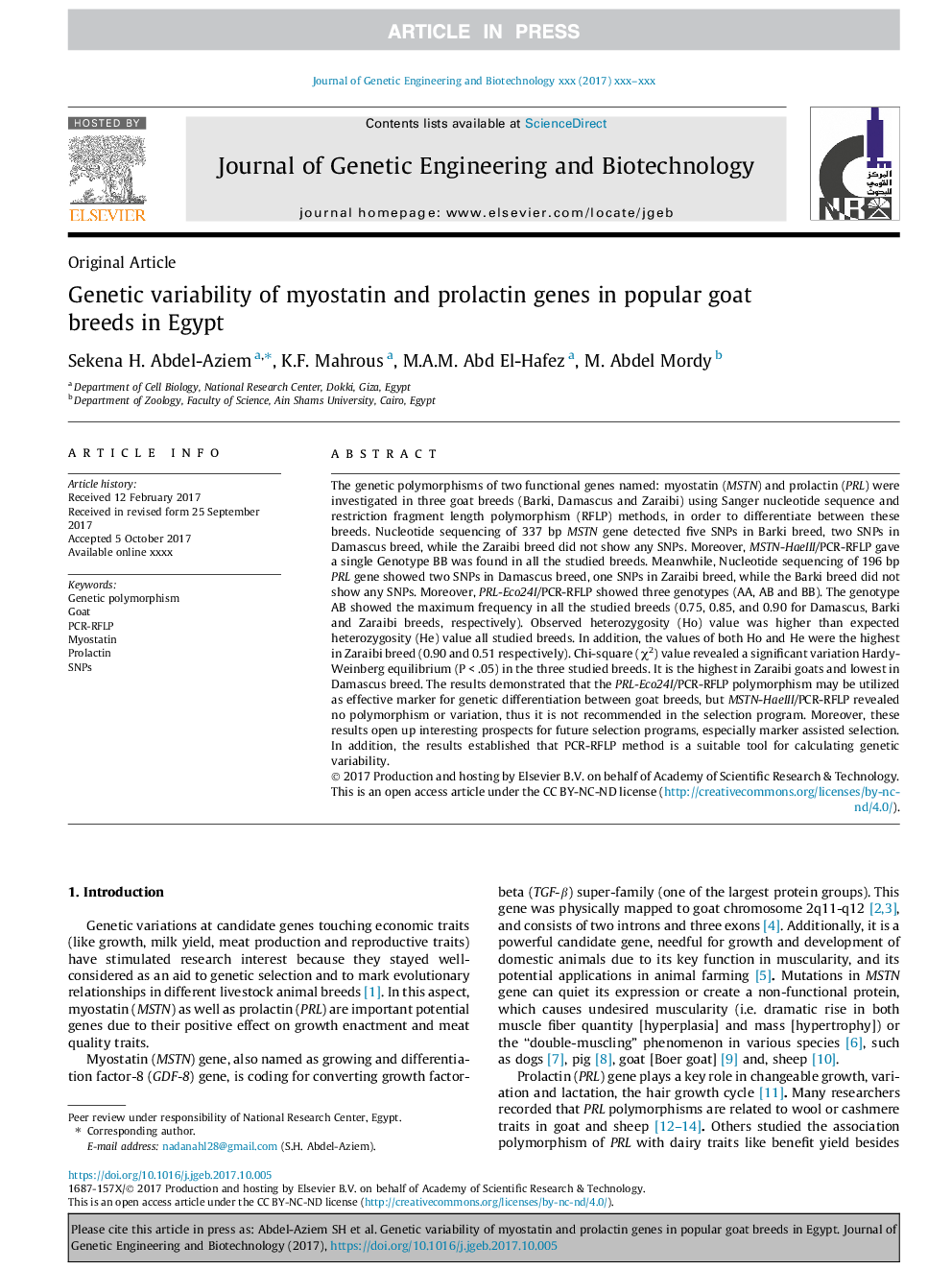| Article ID | Journal | Published Year | Pages | File Type |
|---|---|---|---|---|
| 8416273 | Journal of Genetic Engineering and Biotechnology | 2018 | 9 Pages |
Abstract
The genetic polymorphisms of two functional genes named: myostatin (MSTN) and prolactin (PRL) were investigated in three goat breeds (Barki, Damascus and Zaraibi) using Sanger nucleotide sequence and restriction fragment length polymorphism (RFLP) methods, in order to differentiate between these breeds. Nucleotide sequencing of 337 bp MSTN gene detected five SNPs in Barki breed, two SNPs in Damascus breed, while the Zaraibi breed did not show any SNPs. Moreover, MSTN-HaeIII/PCR-RFLP gave a single Genotype BB was found in all the studied breeds. Meanwhile, Nucleotide sequencing of 196 bp PRL gene showed two SNPs in Damascus breed, one SNPs in Zaraibi breed, while the Barki breed did not show any SNPs. Moreover, PRL-Eco24I/PCR-RFLP showed three genotypes (AA, AB and BB). The genotype AB showed the maximum frequency in all the studied breeds (0.75, 0.85, and 0.90 for Damascus, Barki and Zaraibi breeds, respectively). Observed heterozygosity (Ho) value was higher than expected heterozygosity (He) value all studied breeds. In addition, the values of both Ho and He were the highest in Zaraibi breed (0.90 and 0.51 respectively). Chi-square (Ï2) value revealed a significant variation Hardy-Weinberg equilibrium (P < .05) in the three studied breeds. It is the highest in Zaraibi goats and lowest in Damascus breed. The results demonstrated that the PRL-Eco24I/PCR-RFLP polymorphism may be utilized as effective marker for genetic differentiation between goat breeds, but MSTN-HaeIII/PCR-RFLP revealed no polymorphism or variation, thus it is not recommended in the selection program. Moreover, these results open up interesting prospects for future selection programs, especially marker assisted selection. In addition, the results established that PCR-RFLP method is a suitable tool for calculating genetic variability.
Related Topics
Life Sciences
Biochemistry, Genetics and Molecular Biology
Biotechnology
Authors
Sekena H. Abdel-Aziem, K.F. Mahrous, M.A.M. Abd El-Hafez, M. Abdel Mordy,
